-
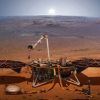 +30 +1
+30 +1While Earth days get longer, NASA finds Mars days are getting shorter
One day on Mars is about 37 minutes longer than an Earth day – but it seems both planets are working to fix the gap. Data from NASA’s InSight lander have revealed Martian days are getting ever so slightly shorter, and scientists aren’t sure why.
-
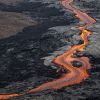 +28 +1
+28 +1The laser-powered method can be used to read into the chemical composition of erupted magma over time.
When you hear news reports about volcanoes spewing lava and ash, you may worry about the people nearby. In fact, almost one in ten people around the world live within 100 kilometres of an active volcano. For those living close to volcanoes, farming on their fertile soils, or visiting their spectacular landscapes, it is crucial to understand the drivers of eruption.
-
 +19 +1
+19 +1How Pink Floyd inspired research into medieval monks and volcanology
Study combines medieval European, Middle Eastern texts with ice core and tree ring data.
-
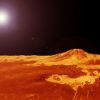 +4 +1
+4 +1There are More Than 85,000 Volcanoes on Venus
Researchers have mapped more than 85,000 volcanoes on the surface of Venus — but suspect there may even be more.
-
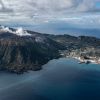 +17 +1
+17 +1Volcanic microbe eats CO2 ‘astonishingly quickly’, say scientists
A microbe discovered in a volcanic hot spring gobbles up carbon dioxide “astonishingly quickly”, according to the scientists who found it. The researchers hope to utilise microbes that have naturally evolved to absorb CO2 as an efficient way of removing the greenhouse gas from the atmosphere. Ending the burning of fossil fuels is critical in ending the climate crisis, but most scientists agree CO2 will also need to be sucked from the air to limit future damage.
-
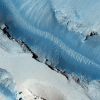 +15 +1
+15 +1Marsquakes, recent volcanism suggest Mars still has a mantle plume
The Mars InSight lander included the first seismograph placed on the red planet, and it has picked up everything from marsquakes to impacts and provided lots of new information on Mars' interior. But perhaps its most striking finding has been that almost all of Mars' seismic activity appears to originate from a single location, a site called Elysium Planitia.
-
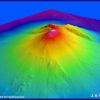 +15 +1
+15 +1Large underwater volcano likely erupting beneath Pacific Ocean's surface, scientists warn
A large submarine volcano is likely erupting below the surface of the Pacific Ocean, according to scientists with the U.S. Geological Survey, citing discoloration.
-
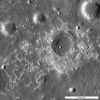 +17 +1
+17 +1Volcanoes on the Moon May Have Erupted During the Dinosaur Age
Called Maskelyne, this feature is one of many newly discovered young volcanic rock deposits on the moon. These deposits are known as irregular mare patches and they are thought to be remnants of small basaltic eruptions. (Image credit: NASA/GSFC/Arizona State University)
-
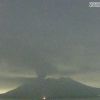 +13 +1
+13 +1Sakurajima volcano in southwestern Japan erupts for 2nd day in row
Japan's weather agency maintained the highest alert level Monday after an explosive eruption the previous day at Sakurajima in Kagoshima Prefecture, southwestern Japan, although there were no reports of injuries. The Japan Meteorological Agency said late Sunday that it was not currently expecting a large eruption similar to one at the same volcano in 1914 that caused many deaths.
-
 +15 +1
+15 +1Volcano near Philippines capital erupts, spewing plume of steam and ash
Thousands of residents are being urged to evacuate, as the Philippines volcanology institute raises the alarm at the Taal volcano to the third level in a five-step warning system.
-
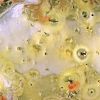 +11 +1
+11 +1Mind-blowing pictures of the solar system's most volcanic worlds
An up-close look at volcanoes in space and how they differ from those on Earth.
-
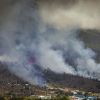 +3 +1
+3 +1Volcano erupts on Atlantic island; lava threatens some homes
LOS LLANOS DE ARIDANE, Spain (AP) — A volcano on Spain’s Atlantic Ocean island of La Palma erupted Sunday after a weeklong buildup of seismic activity, prompting authorities to speed up evacuations for 1,000 people as lava flows crept toward isolated mountain homes.
-
 +21 +1
+21 +1El Salvador to use energy from volcanoes for bitcoin mining
Hours after becoming the first nation to authorise bitcoin as a legal tender, El Salvador’s President Nayib Bukele instructed a state-owned geothermal electric company to plan to use geothermal energy from the country’s volcanoes for mining for the cryptocurrency.
-
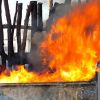 +21 +1
+21 +1The Worst Year to Be Alive in Human History Is Probably Not The One You Think
If someone asked you what the worst year in human history was, what would you guess? 1347 CE was pretty bad. That's the year the Black Death seriously hit Europe. Any of the years of the Holocaust, between 1941 and 1945. Or 1918, the year of the star
-
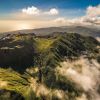 +25 +1
+25 +1Why the volcano erupting in the Caribbean has such a deadly reputation
La Soufrière on the island of St. Vincent, which last erupted in 1979, has a long and tragic history of powerful but mercurial blasts.
-
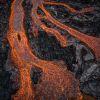 +24 +1
+24 +1This is What Happens When You Fly a Drone Into a Volcano
While drones allow photographers to get very close to erupting volcanoes, it's not without risk: the drones don't always emerge unscathed.
-
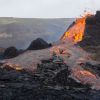 +17 +1
+17 +1Scientists Are Sizzling Sausages On The Lava From Iceland's Erupting Volcano
Science can be hungry work, and when you’ve spent the day sciencing next to an incredibly hot heap of lava only a fool would turn down the opportunity to cook up some sausages. The sizzle-fest kicked off on Sunday on Geldingadalir, a volcano close to Reykjavik, Iceland, which recently erupted with glorious enthusiasm.
-
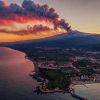 +10 +1
+10 +1Mount Etna spews smoke and ash in spectacular new eruption
Etna's at it again - but authorities say it poses no danger to surrounding villages
-
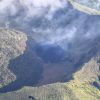 +2 +1
+2 +1Tens of thousands of people living in the Caribbean are on high alert as volcanoes come back to life after remaining dormant for decades
Residents of St. Vincent and the Grenadines have been told to remain alert a Caribbean volcano came back to life. La Soufrière is the highest point in St. Vincent and is located near the northern tip of the country but remained dormant for decades before beginning to spew ash on Tuesday this week, AP reported.
-
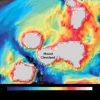 +22 +1
+22 +1An enormous supervolcano may be hiding under Alaskan islands
A mysterious, previously undiscovered supervolcano may be lurking beneath Alaska’s Aleutian Islands. A new study suggests a wide crater, created when the supervolcano exploded, connects at least four existing volcanoes. It’s so big that if the supervolcano erupted during the last few thousand years, it could have disrupted civilizations around the world, says John Power, a geophysicist at the U.S. Geological Survey’s Alaska Volcano Observatory. Power presents the findings at the annual meeting of the American Geophysical Union on December 7.
Submit a link
Start a discussion




















